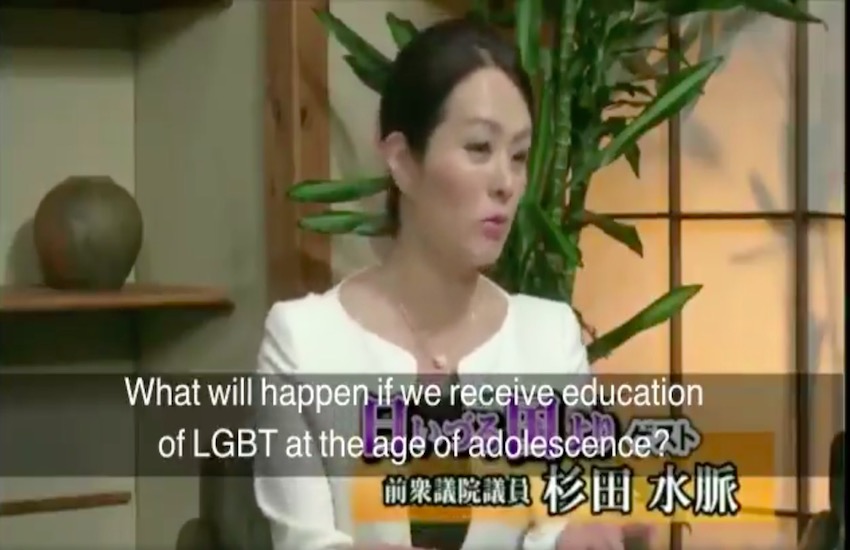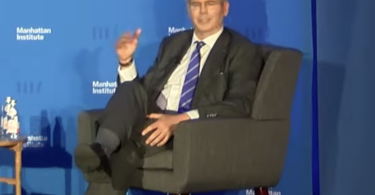Japanese politician Mio Sugita discussing LGBTI education on a right-wing TV show
Japanese politician Mio Sugita has yet again taken jabs at the LGBTI community. Earlier this month, she said LGBTI people are ‘unproductive’ and should not receive welfare. Now, during an appearance on a right-wing television show, she doubled down.
What happened?
Sugita appeared on a right-wing television program co-hosted by Koichi Sugiyama, music composer for the popular Dragon Quest games. During this appearance, upon discussing education for LGBTI people, Sugiyama laughs as Sugita expresses why she views LGBTI students as unimportant.
Japanese parliamentarians talked about LGBT education on television. This is the current situation.#MeToo #takepride #LGBT #transgender #Japan pic.twitter.com/pSt4M1BgQ0
— KAEDE,Sari Hatashima (@kaedehatashima) July 22, 2018
Sugita told the hosts that she was recently asked about the need for LGBTI education in schools.
‘Of course there’s no need for such a thing. Of course not,’ she said.
‘They told me that the suicide rate among homosexual children is six times higher than that of normal children. “Do you still think it’s unnecessary?” they asked,’ Sugita explained.
‘Even if the suicide rate is high, the priority is low, I think,’ she replied to the question.
When asked what she thinks will happen if children get LGBTI education, she said ‘you wouldn’t be able to go back to being normal again.’
Girl crushes as a child
However, later on in the interview, Sugita revealed that she had crushes on fellow schoolgirls when she was a child.
‘If there was a cool-looking girl, I would write her a love letter and whatnot. But as I got older, I fell in love with a man, got married and became a mother,’ she said.
Backlash
Other prominent Japanese figureheads have blasted Sugita for her homophobic stances. For instance, Taiga Ishikawa, who became the country’s first openly gay politician in 2011, said Sugita’s comments ‘significantly tarnish Japan’s reputation.’
‘Homosexuality is not the definition of unhappiness,’ he said. ‘It’s discriminatory remarks like Sugita’s that make us unhappy.’







